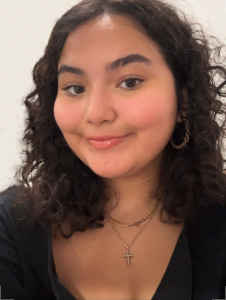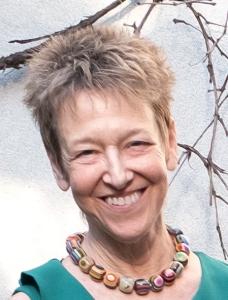This student story was published as part of the 2023 NASW Perlman Virtual Mentoring Program organized by the NASW Education Committee, providing science journalism practice and experience for undergraduate and graduate students.
Story by Emely Bonilla
Mentored and edited by Robin Marantz Henig
As we return to our normal lives after the COVID pandemic, investigators are beginning to explore how this experience has affected Americans. One study conducted by the Pew Research Center revealed a surprising discovery: the group who worked their hardest to end the pandemic, research scientists, are facing a decline in Americans’ trust, dropping ten percent between November and December of 2021.
“Trust in scientists and medical scientists, once seemingly buoyed by their central role in addressing the coronavirus outbreak, is now below pre-pandemic levels,” write the Pew researchers, Brian Kennedy, Alec Tyson and Cary Funk, in their February 2022 report. "The new findings represent a shift in the recent trajectory of attitudes toward medical scientists and scientists. Public confidence in both groups had increased shortly after the start of the coronavirus outbreak."
The Pew findings raise questions about how the public view of scientists and their work might affect the long-term public image of scientific researchers, as well as decisions for current undergraduate and graduate students who might be considering careers in the sciences.
Paul M. Sutter, a research professor at the Institute for Advanced Computational Science at Stony Brook University, says skepticism surrounding vaccine and vaccine research helps account for the Pew findings; an aspect of the pandemic that caught many observers off-guard.
“I think a lot of people did not expect how loud those [anti-vax] voices would come, how convincing they would sound and how many people would jump onto that...,” said Dr. Sutter. People who were raised to believe in science tend to assume “that science had a voice of authority to it,” he said. “But there are a lot of people who do not trust authority, who do not trust the government, who then do not trust scientists.”
The same Pew study also revealed that most Americans have little to no faith in elected officials. The amount of distrust rose 13 points from 63 percent to 76 percent from November 2020 to December 2021. Many authority figures played a role in pandemic mitigation, which might have added to the public's distrust towards science.
To some extent, science was a polarizing subject even before the pandemic, particularly relating to three hot-button topics: climate, food issues, and vaccines, according to a June 2017 study from <A href="https://www.ncbi.nlm.nih.gov/books/NBK436747/">the National Academies Press under the Government-University-Industry Research Roundtable. Since vaccines were a key component of the pandemic response, the science community could have possibly anticipated this debate and prevented damage to their public image.
John Besley, a public relations professor at Michigan State University, has conducted research focusing on the concept of trust and what measures trustworthiness.
“One of the challenges that we're facing is that there seem to be groups in society, who aren’t just questioning whether or not the science is good. Instead of questioning if the science is good, it's easy to attack the scientists,” said Dr. Besley. “Where's the scientist getting their money from? Whose group is this scientist part of? I think there is an increasing emphasis on groups in society questioning scientist trustworthiness in ways that are disingenuous.”
To combat this, the scientific community needs to work towards humanizing science. Researchers need to be willing to put themselves in the public eye, explain their intentions, and empathize with their audiences.
“I think we've failed as a community of scientists to prepare for that reality, to acknowledge that as a reality, and to grapple with the fundamental issues of mistrust... so it forces me as a scientist to ask, ‘What could we have done as a community better?’" said Dr. Sutter.
As a new generation of scientists emerge, Dr. Besley says professors and students must transition to a new mentality to create an understanding between scientists and the public. He said he hopes educators take the time to share with onlookers the legitimacy and goals of their research to prevent this gap from growing.
Data released by National Student Clearinghouse Research Center shows that since 2021 there has been a steady decline in enrollment for nearly all STEM-related fields. Both undergraduate and graduate STEM-related majors—public health, various clinical careers, biological sciences, and engineering -- have seen a decrease in enrollment from 2021 to 2023, but there have been no studies that clarify to what extent the pandemic contributed to this decline.
Currently, the scientific community faces the possibility that students looking towards pursuing a higher education are losing interest in the sciences. If the distrust towards science continues to spread these issues may continue to worsen.
 Enrollment Change for Associate Students by Major from Spring 2021 to Spring 2023. Credit: National Student Clearinghouse Research Center.
Enrollment Change for Associate Students by Major from Spring 2021 to Spring 2023. Credit: National Student Clearinghouse Research Center.
 Enrollment Change for Bachelor Students by Major from Spring 2021 to Spring 2023. Credit: National Student Clearinghouse Research Center.
Enrollment Change for Bachelor Students by Major from Spring 2021 to Spring 2023. Credit: National Student Clearinghouse Research Center.
 Enrollment Change for Master Students by Major from Spring 2021 to Spring 2023. Credit: National Student Clearinghouse Research Center.
Enrollment Change for Master Students by Major from Spring 2021 to Spring 2023. Credit: National Student Clearinghouse Research Center.
Emely Bonilla is an undergraduate student at California State Polytechnic University, Pomona currently pursuing a bachelor’s degree in both Biology and Multimedia Journalism. Bonilla has covered a range of topics from climate change, immerging research, and scientific society. She hopes to continue telling the stories of passionate scientists worldwide while working on her own research as well. Bonilla can be reached by e-mail at emsbonilla4@gmail.com.
The NASW Perlman Virtual Mentoring program is named for longtime science writer and past NASW President David Perlman. Dave, who died in 2020 at the age of 101 only three years after his retirement from the San Francisco Chronicle, was a mentor to countless members of the science writing community and always made time for kind and supportive words, especially for early career writers. Contact NASW Education Committee Co-Chairs Czerne Reid and Ashley Yeager and Perlman Program Coordinator Courtney Gorman at mentor@nasw.org. Thank you to the many NASW member volunteers who spearhead our #SciWriStudent programming year after year.
Founded in 1934 with a mission to fight for the free flow of science news, NASW is an organization of ~ 2,600 professional journalists, authors, editors, producers, public information officers, students and people who write and produce material intended to inform the public about science, health, engineering, and technology. To learn more, visit www.nasw.org



